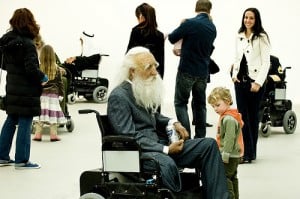 It’s no secret a lot of people in the world aren’t comfortable around people with disabilities, despite the fact that 1 in 5 people have some kind of disability (or a “limiting permanent physical condition” for those who can’t refer to themselves as disabled yet). It can take time getting comfortable with the idea of being disabled, and it can take even longer for people to get comfortable around us.
It’s no secret a lot of people in the world aren’t comfortable around people with disabilities, despite the fact that 1 in 5 people have some kind of disability (or a “limiting permanent physical condition” for those who can’t refer to themselves as disabled yet). It can take time getting comfortable with the idea of being disabled, and it can take even longer for people to get comfortable around us.
As a person with a disability, interacting with the public can reveal a number of shocking social mores. We can cause immense stress to some people just by rolling into the room, pulling up to the drive-thru or asking for their help in the store. But it’s never too late for people to change.
If you’ve never gotten to know someone with a disability before, or maybe you’re meeting a person with a disability and are worried you might make a fool of yourself, here are 10 must-know tips on interacting with people with disabilities.
1. Avoid the “you’re so inspirational” remarks.
People with disabilities as a whole don’t like being referred to as “inspirational,” especially when they do a basic task like I dunno, go and buy some milk. And this happens all the time. While some people get inspired by us simply living our lives and can’t help it, please try to refrain from sharing your thoughts with us. We are just trying to live our lives like everyone else. Your comment will have the negative effect, reminding us how different people still think we are.
2. Whatever you do, don’t talk louder.
There’s still a large portion of the population that does one of the most offensive things you can do when interacting with someone with a disability – talking louder when speaking to us. Why do they do this even if they know we’re not deaf? They think we’re daft. Lesson to be learned: The presence of a mobility aid does not mean we are stupid or can’t hear you.
3. Ask before helping.
It may be hard to resist, but automatically helping us without asking first should never be done. We know when to ask for help. Just wait for us to speak up. Even if it seems like we’re too shy to ask, please don’t grab our jacket and help us put it on without asking first. Or assist us when we’re getting into our accessible van. How would you like it if someone barrel-rolled themselves into your personal space? You wouldn’t. The same goes for us.
4. Don’t lean on our wheelchairs.
Something strange happens whenever I go to a crowded standing-room only event – people love to use me as a convenient object to lean on. They have no idea what they’re doing in some cases, but this is very much something to avoid. From our perspective, it’s one of the most de-humanizing things you can do. You would never do it to someone who is standing, but to us, it’s ok?
And I get it. I used to walk. I know it gets tiring standing for a long time, but leaning on us (or God forbid using us as a footrest) can make you look like the biggest jerk ever. Just remember these five words: We are not rolling furniture.
5. Introduce yourself when speaking with the visually impaired.
I’ve had friends who were blind and one of the most important things you can do when you first meet someone with vision limitations is to introduce yourself. This is something you would normally do anyways, but in the case of someone with vision issues, this should be done right away just to let them know you are near so they can better “see” their surroundings.
6. Stay calm – it’s only a wheelchair.
This saying says so much in a few simple words, and the deeper meaning is something to really take home if you want to better interact with us. Breath, keep calm, there are scarier things in life than us. We are just another ho-hum human, but sitting in a chair on wheels. We’re really not as different as you may think. Really.
7. Refer to us as person first.
Throughout this article, you may have noticed me referring to the disabled population as “people with disabilities.” This is called “person first” language and people with disabilities should always be referred to this way in written-form, and in the thought-process as well. It’s about looking at the human beneath whatever condition we may have. If you can manage to adopt writing and speaking this way, you’re on your way to seeing us before our disability.
8. Save the patronizing for someone else.
Avoiding patronizing remarks also ranks high on the list of how-to better interact with people with disabilities. Anything along the lines of “Good for you,” “You’re so brave,” “Wow I’m impressed” should never be uttered. Just remember, again, we are not that different. Now if we win a few gold Paralympic medals, win an Oscar, or invent a flying wheelchair, you better let those patronizing remarks fly.
9. Talk to us, not whoever is with us.
It can be hard to witness, but when you’re at a restaurant and see someone with an obvious disability, watch how the waiter interacts with them. More often than not they’ll ask whoever they’re with – not them – what they’re ordering, sadly assuming the person’s disability must affect their mental ability too.
This way of thinking still permeates the minds of many and is one of the top offenses to people with disabilities. Always assume they can think just as quickly as you can, and you’ll be good to go.
10. When in doubt, refer to the “Golden Rule.”
And above all, when in doubt over how you should treat us, always refer to the Golden Rule. The Golden Rule is beautifully simple – treat others as you’d like to be treated. Mutual respect. At the end of the day, this is the only tip you need. If everyone referred the Golden Rule in all aspects of life, oh the world, we wouldn’t even recognize it.
Interacting with people with disabilities is only as hard as you make it. Remember the basics above, while always making sure to never forget the importance of basic good human interactions. If you can manage that, you’re officially a cut above the rest, breaking free from antiquated ways of interacting with people with disabilities.
Which other able-bodied/disabled interactions do you think needs some improvement?
Photo credit: vintagedept / Foter / CC BY-NC-ND

Find your perfect Wheelchair Van
Select from thousands of wheelchair vans for sale from hundreds of nationwide dealers
The Mobility Resource has one of the largest selections of Dodge, Toyota, Chrysler, Honda, Ford, Chevrolet wheelchair vans
View All Wheelchair Vans



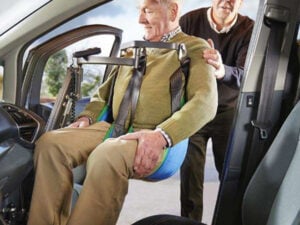


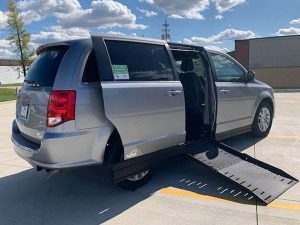


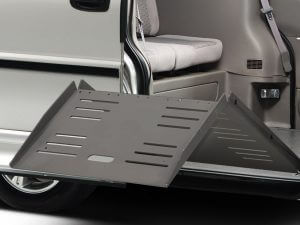

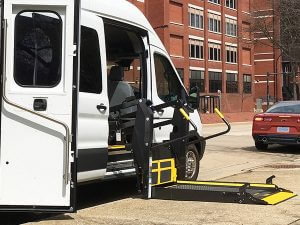


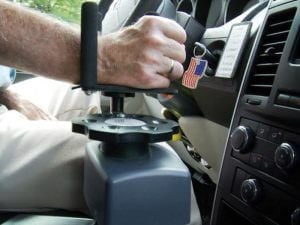

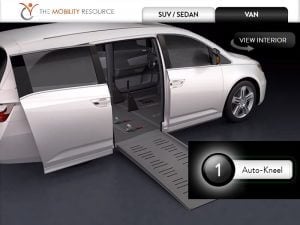



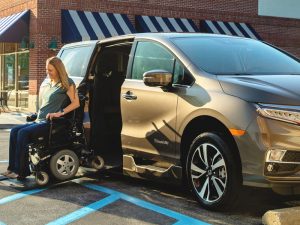
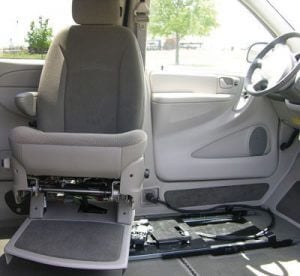
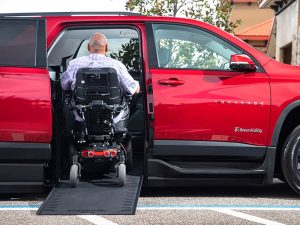
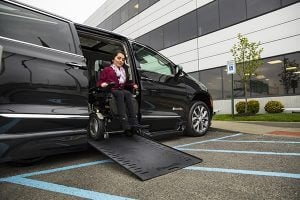

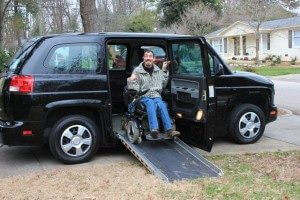







Tweet
Share https://www.themobilityresource.com/blog/post/10-correct-ways-to-interact-with-people-with-disabilities/